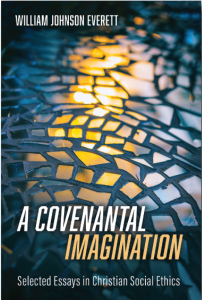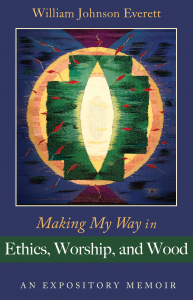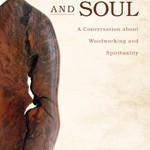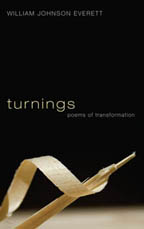The reactionary impulses of the 2010 elections propelled the North Carolina Republican Party into control of the legislature for the first time in a century. One result was that we North Carolinians are now asked to be the last state in the old Confederacy to outlaw same-sex marriage at the Constitutional level. The amendment states:
“Marriage between one man and one woman is the only domestic legal union that shall be valid or recognized in this State. This section does not prohibit a private party from entering into contracts with another private party; nor does this section prohibit courts from adjudicating the rights of private parties pursuant to such contracts.”
Most of the mess this leaves behind – policies concerning employment benefits, custodial rights, care of sick partners, and the like – is left to the courts and future legislative sessions. My own little contribution to the public debate about this ill-advised amendment is contained in the following statement, slightly edited, sent to my local newspaper, The Mountaineer.
The proposed amendment to the North Carolina Constitution restricting marriage to one man and one woman invites us to ask the traditional question: What are the purposes of marriage? For many centuries Western Christianity, and with it much of civil law, followed the dictum of St. Augustine, who proposed, in the later fourth century, that the purposes of marriage were children, fidelity, and the sacrament (proles, fides, sacramentum). That is, the institution of marriage existed so that people could raise children, exercise fidelity, and participate in the work of salvation set forth by the Church. The Protestant Reformation rejected the idea of marriage as a sacrament, but the idea has persisted that marriage in some way enables us to deepen our spiritual life through our relation with a spouse.
Until the eighteenth century the bearing and raising of children was seen as the primary purpose of marriage. Fidelity, and with it companionship, was seen as supporting this primary purpose of marriage. By the early twentieth century companionship became the primary purpose of marriage. The reasons are well known. Since John Milton’s seventeenth century defense of divorce, some religious teachers had been emphasizing the companionate aspects of marriage. Women had begun to gain an economic and legal foothold apart from their husbands. Better understand of the physiology of conception had led to increasing effective means and use of birth control. Among both Catholics and Protestants, the sacramental aspect began to take on a more personal spiritual meaning, though with different emphases.
Because companionship was now the primary purpose of marriage, divorce became more common as specific marriages failed to serve this purpose. No state or church could force people to be friends, and so the marriages created to sustain friendship failed, with the state stepping in to protect the rights of children from that marriage.
Now we confront the question of whether this institution should be restricted to a male and a female. I believe the scope o marriage should be expanded to include people of various sexual orientations. In terms of the purposes of marriage, here are my reasons. The kind of companionship and spiritual friendship known by men and women in heterosexual marriage also exists for homosexual men and women. Therefore, the state’s interest in formally supporting this intense mutual care should apply to them also.
Secondly, thousands of children, including children here in Haywood County are being raised by same-sex couples, who provide a loving and nurturing environment most of these children would never have. Some of these couples are raising children conceived by one of the parents. Again, the state’s interest in protecting the parent-child bond is served by extending the rights and responsibilities of marriage to these couples.
Thirdly, many of these couples are involved in our churches, whether acknowledged or not, and deepening not only their own spiritual life but the spiritual life of those around them. They participate in a sacrament that no state should tear from them.
Finally, it must be acknowledged once again that no marriage is harmed by extending this institution to same-sex couples. Indeed, Massachusetts, where same-sex marriage has been legal for several years, has less than one-half the divorce rate of North Carolina. By extending marriage to all couples committed to life-long faithfulness, care for the next generation, and deepening the spiritual life, we strengthen and vitalize our communities as well. I urge my fellow citizens to reject this unnecessary and harmful amendment to our state constitution.







 Red Clay, Blood River
Red Clay, Blood River
Spiritual can be enhanced by always making sure that you have compassion to everyone. ”
<a href="Our web portal
http://www.homeimprovementstuffs.com/sheer-curtains-as-a-main-window-covering/
Spiritual life is quite unique because it embodies a life that is free from being to materialistic. `:,.’
Have a great day!
http://www.healthmedicinelab.com“>
Well said Dad! I’m going to forward this to some people.
Elaine
History always has a way of clarifying our current “opinions.” By doing so, I like your (as it were)broadening of the purposes of marriage, and putting in relief the limited view of one man-one woman marriage. In doing so, you also remove the sting from the current rigid positions against same sex marriage. As usual, Bravo! Thank you for using your gift of intelligence for bringing clarity to our muddied (and muddled)conversations. Tim Bachmeyer
Great, Bill, very beautuifully written letter. Hope it changes hearts and mind, or at least gives pause. Pippa